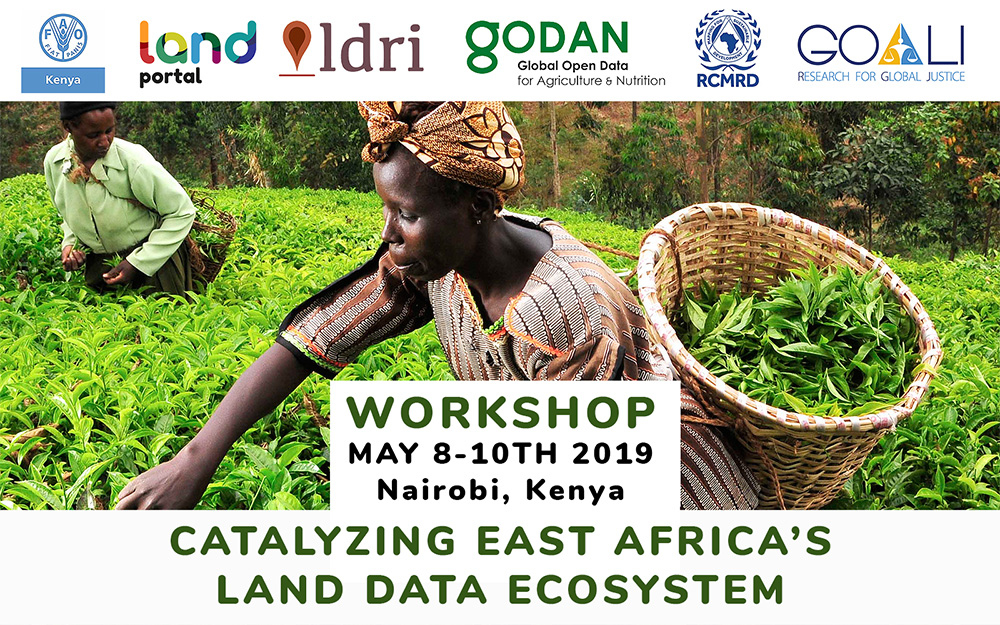There is no doubt the Global Data Revolution has reached the land sector. Government data portals, open access academic journals, community mapping initiatives and other citizen-generated data - there is a palpable positive drive across the world that allows processes such as data collection to be more inclusive and open. But within this data momentum, there are still many barriers and questions: Who can access the data, and how? What data is reliable? Who owns the data? What data is up to date? Can I use the data without inflicting harm?
We have a collective responsibility to ensure the Data Revolution is inclusive and leveraged to affect real change. In the end, data can only be of value when it is used responsibly. We would like to invite all stakeholders in the land data ecosystem in East Africa to our upcoming workshop, co-organized by FAO Kenya, the Regional Centre for Mapping of Resources for Development (RCMRD) the Local Development Research Institute, GODAN Africa, Research4Life and the Land Portal, at the University of Nairobi on May 8-10th 2019.
The overall goal of the workshop is to uncover the land data & information ecosystem (including gaps in existence, accessibility or abilities to re-use data) in East Africa and contribute to foster a regional policy dialogue on access to data.
Please sign up for this workshop through our Eventbrite page. We look forward to seeing you there!
We are very grateful for the generous support of our donors, without whom this workshop would not be possible:



